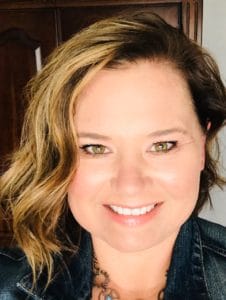Providing Water by Putting Her People First

Heather Dyer (EMBA ’19) wants you to know that there’s no need to load up on water when you’re making that harried trip to the grocery store to stock up during the global pandemic. What you get from the tap is typically purer than the bottled variety, she says, and the supply is virtually endless.
Her job is to make sure that this situation never changes.
Dyer was promoted from staff biologist to general manager of the San Bernardino Valley Municipal Water District on New Year’s Eve—the first female and one of just two non-engineers to lead the agency, which supplies water to retail providers serving 800,000 customers.
Though water districts are accustomed to projects with lifecycles that can exceed 50 years, Dyer realized early in her tenure that she needed to think in the short term, and quickly.
In this global pandemic, Dyer is keeping the water flowing to San Bernardino’s communities.
With family in Seattle—near the nation’s first COVID-19 case—and expertise in pathogens, Dyer began preparing for the worst. She brought her staff together to create a business response plan for a pandemic, and on March 16 they were ready.
“I thought we had another week,” she says, “but by the next day we had to implement it.”
The administrative staff could work remotely, but the district still needed someone at the pumping station to ensure that water flowed 24 hours a day. She implemented a strategy to have pairs of people working 12-hour shifts—one at the station and the other in the field to handle maintenance, with the rest of the nine-person operations team rotating in and waiting on standby in case anyone fell ill.

To date, everything is going as planned, Dyer reports—and email traffic as late as 11 p.m. attests to everyone’s commitment. Best of all, staff members and their families remain healthy.
During these difficult times, it turns out that Dyer’s biggest challenge lies elsewhere—in making the mundane accessible.
The water district, as a public agency, is required by law to conduct open meetings. That used to mean opening the door and welcoming all who wanted to attend. In the now-required digital age, it takes more than simply directing people to a link.
She credits Jeremy Hunter’s concept of ‘the zone of resilience’ which “has helped me focus on taking care of myself and my people.”
“Our IT manager is amazing—an all-star,” Dyer says. “She’s done a ton of investigation into having people register unique meeting codes, and she created a special template to highlight information as we progress through the virtual meeting. And she made it easy to understand for our staff and directors.”
Dyer credits Associate Professor Jeremy Hunter, founding director of the Drucker School’s Executive Mind Leadership Institute, with helping prepare her to manage through a crisis.
“I’ve developed what he calls ‘the zone of resilience,’ which has helped me focus on taking care of myself and my people,” Dyer says. “Peter Drucker always talked about the people being the business. From the outset, I’ve focused on keeping the staff safe and valued, and I’ve let them know that we’re going to get through this. I care about you, and you care about me. We’ve actually grown closer as a team. It’s been an amazing silver lining.”